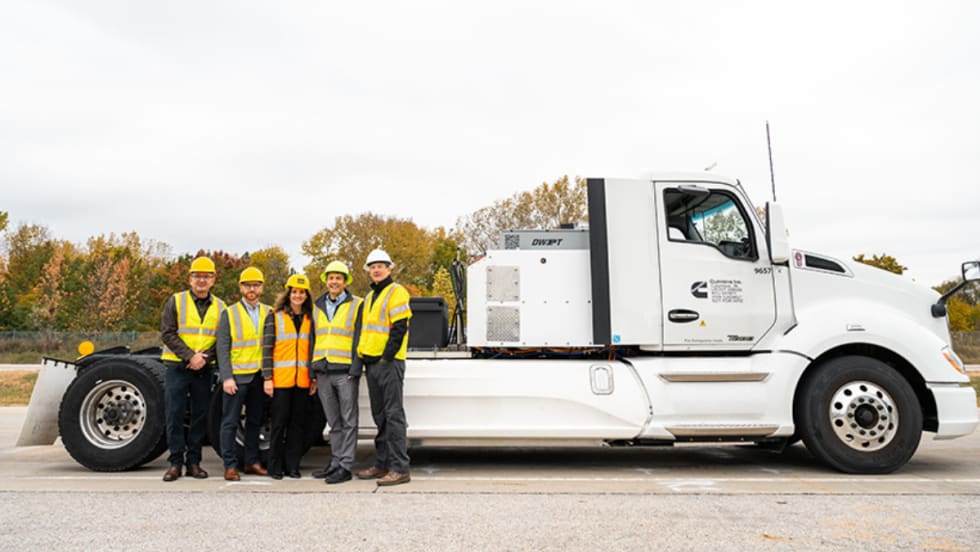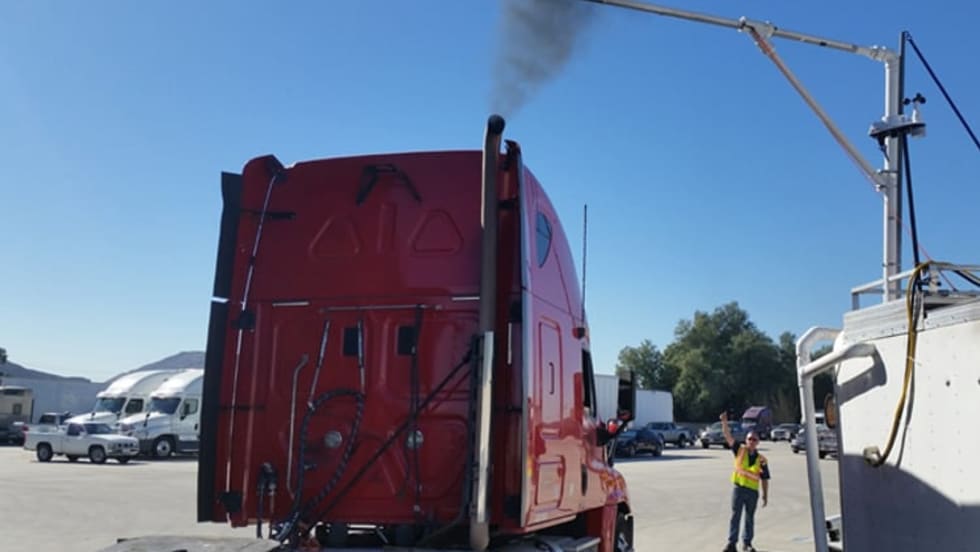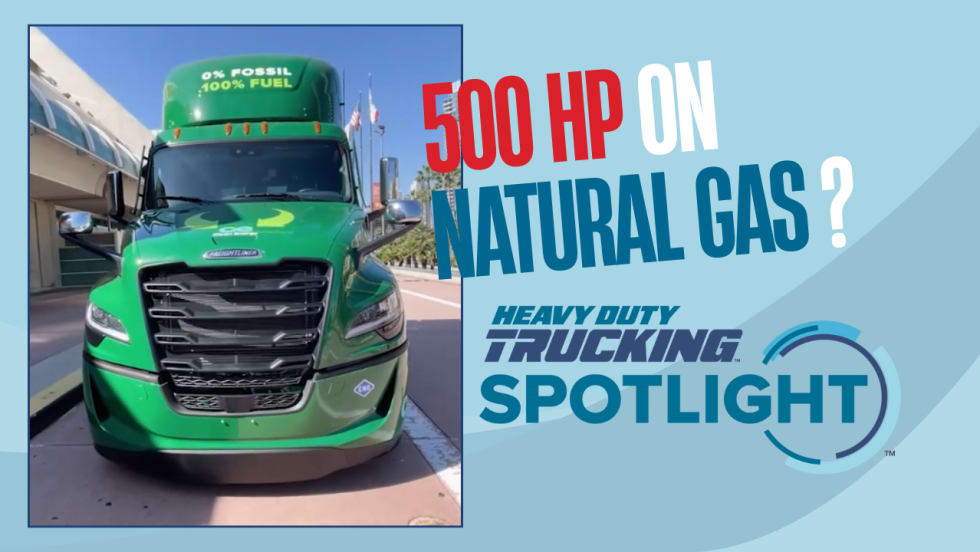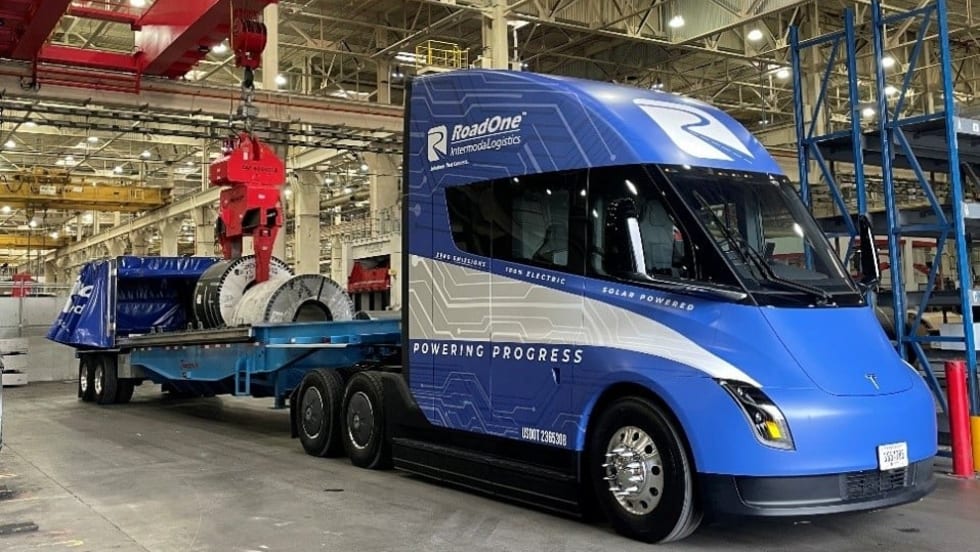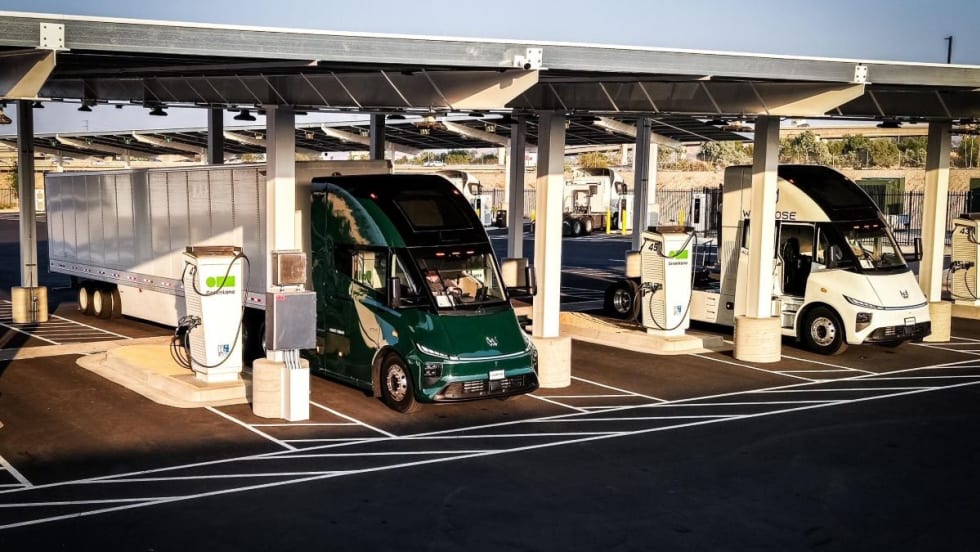A wide range of transportation and health organizations have announced a partnership to conduct a year-long validation project of a new biodiesel technology to demonstrate its viability in real-world, high-mileage fleet applications.
The new technology is called the Vector fuel system, developed by Optimus Technologies, a tech company specializing in alternative fuels. The company said its mission is to provide its customers with a seamless transition to renewable fuels that are compatible with their existing infrastructures while minimizing disruptions to their daily operations and reducing their overall operating costs.
Optimus said the new Vector fuel system is a bi-fuel solution that enables a truck to run exclusively on biodiesel. To optimize fuel savings and emission performance, the Vector System powers the engine on renewable fuel 100% of the time other than startup and shutdown. It allows a fallback to diesel operation if necessary.
Optimus said the Vector fuel system is a bolt-on, conversion system that reduces operating costs without rebuilding, replacing, or significantly modifying existing engines and is engineered to optimize the use of existing renewable fuels and to accept new fuels as they emerge.
Optimus described the Vector as a combination of patented and patent-pending mechanical hardware and software integrated into an intelligent system that enables tracking and quantitative analysis of cost savings, emissions reductions, and petroleum offsets.
Additionally Optimus said the Vector fuel system features:
Regulatory Compliance: No other company manufactures an EPA-compliant biodiesel conversion system designed for medium- and heavy-duty trucks, the company said.
Seamless Integration: Integrates into existing engine systems and never inhibits the use of traditional diesel. The renewable fuels utilized can be dispensed from existing diesel refueling stations.
Easy Installation and Maintenance: Can be installed quickly by either Optimus or customer mechanics. The maintenance is similar to the OEM diesel system.
Purpose-Built Software: Optimizes the use of cleaner fuels without the need for driver input and enables tracking of key system and engine parameters for fleet technicians.
Rugged Design: Built exclusively for medium- and heavy-duty trucks that operate in harsh environments across a broad temperature range.
Reduced Emissions: The Vector has been independently tested to reduce multiple types of emissions, including particulate matter by up to 40% and NOx by up to 10% over diesel.
Under the terms of the evaluation partnership, five trucks owned by ADM will be outfitted with the Vector fuel system. The trucks will be used in daily fleet operations for a year-long period, with each vehicle anticipated to travel 160,000 to 180,000 miles and reduce up to 500,000 pounds of CO2. Advanced monitoring protocols will compare the performance and results of the new technology with five other trucks comprising a control group operating on conventional diesel. All biodiesel used in the project will come from ADM’s refinery in Mexico, Missouri.
An Optimus spokesperson added that as far as Vector and OEM engine warranties are concerned, the vast majority of OEMs support B20 biodiesel blends and noted that the use of biodiesel in and of itself does not void a manufacturer’s warranty. In the case of this project, he added, the trucks that received the Optimus Vector System were legacy fleet vehicles beyond their original warranties so the modifications didn’t impact anything with the OEM or their warranties.
While nearly all diesel engine manufacturers support at least 20% biodiesel (B20), Optimus said its Vector system is designed to allow conventional diesel engines to run on 100% biodiesel in a wide range of climates. The system is already in use in shorter-mileage, local fleet applications, such as distribution and waste removal. This new project is designed to evaluate its use for longer-haul over-the-road fleets, potentially opening a pathway to significantly higher volumes of biodiesel in the U.S. truck fleet.
“Our commitment to global sustainability includes reducing emissions, and we have a great opportunity here to validate a technology that could, in theory, expand the use of environmentally-friendly biodiesel in diesel trucks by five-fold or more,” said Steve Finn, ADM’s vice president for trucking. “Going forward, we expect over-the-road trucking miles in the U.S. to continue to increase, so we have an opportunity to use innovative technologies to multiply the environmental and economic benefits of biodiesel. That’s what we are working towards together in this new partnership.”
“Biodiesel blends have been utilized successfully in millions of miles of real-world applications across the diesel sector over the last two decades, but this project is especially exciting as more fleets look to take it to the next level,” said Kaleb Little, director of communications for the National Biodiesel Board. “Biodiesel’s recognition as a low-carbon fuel option has fleets pushing the envelope, increasing their use of even higher blends, B20 all the way to B100, and this technology makes it easier than ever for users to do just that.”
“We’re excited to announce this partnership with ADM and commend their commitment to sustainability and leadership in both the biodiesel and transportation sectors,” said Colin Huwyler, CEO of Optimus Technologies. “Trucking is the backbone of the American economy and carbon emissions from transportation continue to rise. Optimus’ technology coupled with ADM’s fuel provides heavy-duty fleets an immediate pathway to reduce these emissions over 80%. While the promise of heavy-duty fleet electrification is still decades off, this project demonstrates the ease, low cost, and efficacy of integrating biodiesel into existing fleet equipment and operations.”
In addition to ADM and Optimus, this project is supported by the American Lung Association, the National Biodiesel Board, the Illinois Soybean Association, and the Missouri Soybean Merchandising Council.





